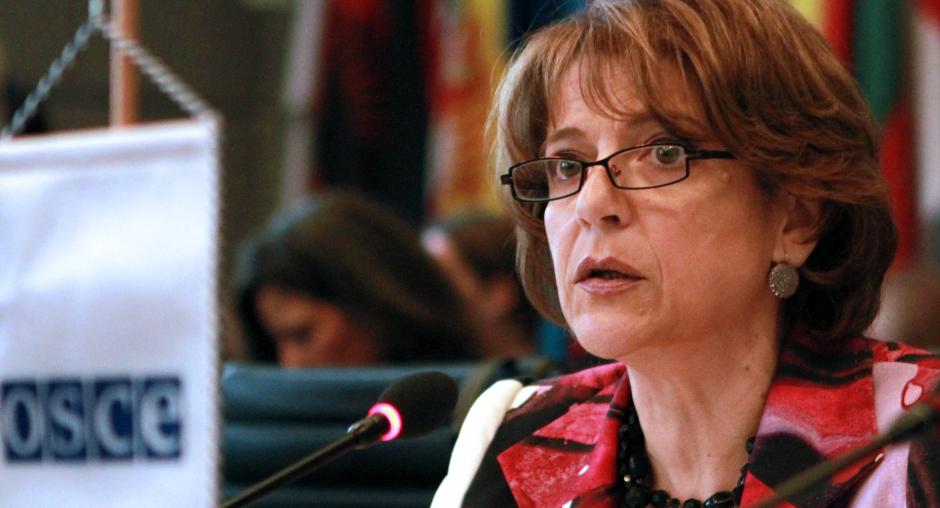Human trafficking is intolerable in a civilized world, says OSCE Special Representative on Anti-Trafficking Day

VIENNA, 18 October 2011 – The OSCE Special Representative and Co-ordinator for Combating Trafficking in Human Beings, Maria Grazia Giammarinaro, called on governments to intensify the fight against modern-day slavery and prioritize victims’ rights on the occasion of the European Union Anti-Trafficking Day on 18 October.
“My thoughts go to the many people who have lost their freedom and control over their lives, to those people – mainly women and girls – who are forced into prostitution; to those who are trapped in debt bondage, and compelled to work long hours without receiving a salary in agriculture, construction, domestic servitude; to those children who are obliged to beg or to steal for the advantage of their exploiters,” said Giammarinaro. “The rights and interests of these people must always take first place. This is the human rights-based approach the OSCE has always adopted in combating human trafficking.”
“Human trafficking has no place in a civilized society. And yet trafficking is growing and has become a regular component of certain areas of the labour market, and a huge business for organized crime.”
“The significance of EU Anti-Trafficking Day goes far beyond the European Union, whose countries are a destination for many trafficking victims from beyond the EU’s borders.”
Giammarinaro called on governments to improve anti-trafficking action and policy, and show consistency in effectively implementing a human rights-based approach and the adoption of a political agenda in which anti-trafficking action is a real priority. Border, immigration and law enforcement agencies should fully comply with protective obligations as soon as there is an indication that a person might have been trafficked. She stressed that governments should co-operate with NGOs and trade unions to support trafficked persons in recovery and social inclusion. The private sector should take responsibility to clean their supply chain and finally the international community should step up co-operation, especially in the field of prevention.
The Special Representative and her Office are contributing to a number of events to mark EU Anti-Trafficking Day including: an event at the Diplomatic Academy in Vienna co-ordinated by the Austrian Government in co-operation with the International Organization for Migration (IOM); an international seminar in Madrid organized by IOM and the Spanish Government; the 5th EU Anti-Trafficking Day in Warsaw organized by the Polish EU Presidency, the European Commission, the EU Anti-Trafficking Co-ordinator and seven EU Agencies; as well as the UK Prime Minister’s Anti-Slavery Day celebration.
